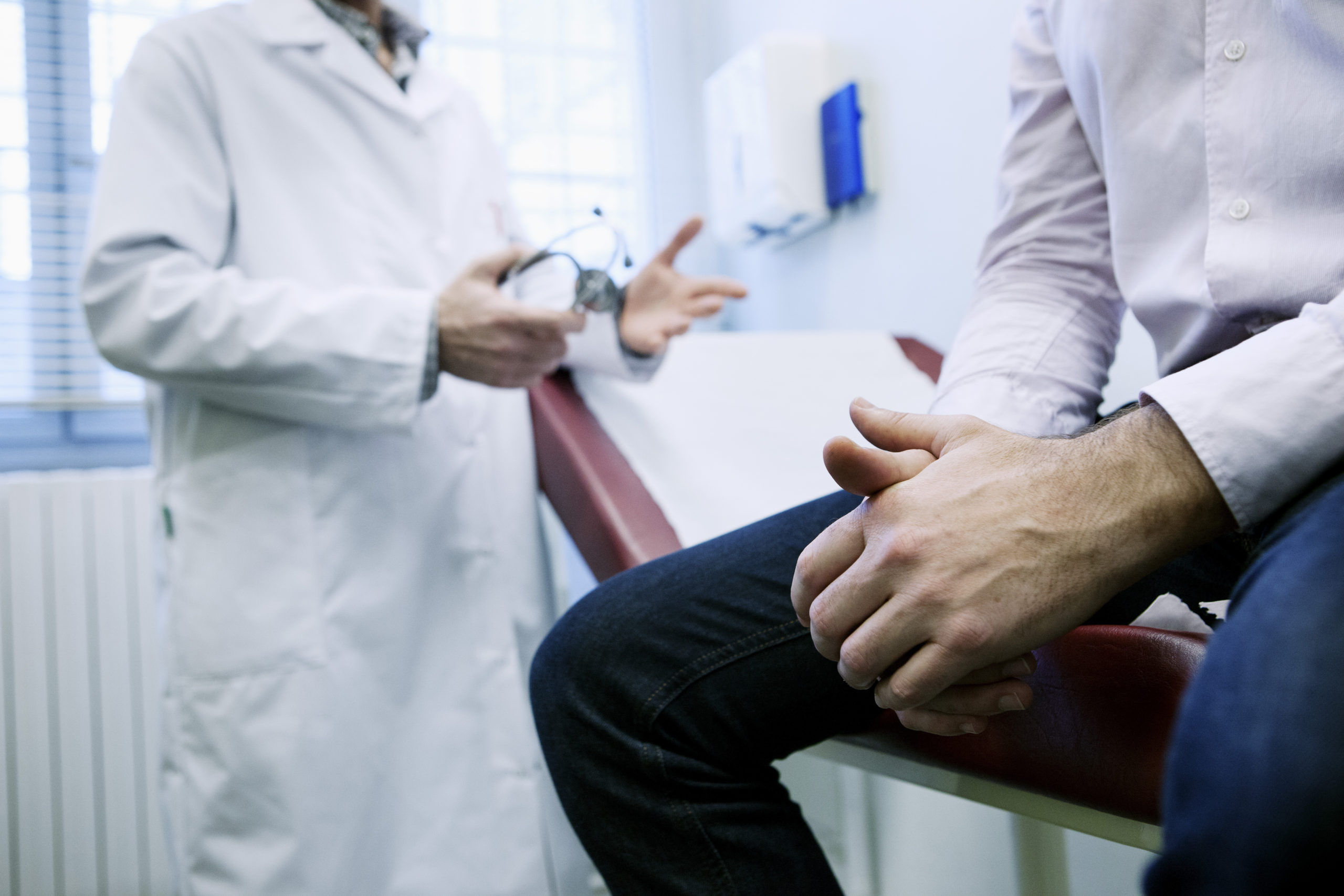For many men, prostate cancer does not exhibit any signs or symptoms in its early stages. This is why it’s so important for men to receive regular prostate screenings after age 50. By the time a man begins to notice certain strange prostate cancer symptoms or differences in his body, it may be too late.
Most symptoms of prostate cancer are due to it developing into more advanced stages. When most men are diagnosed, they typically have not begun showing symptoms.
Early screening tests are crucial in helping to identify if you do have prostate cancer, as well as preventing its development into more serious, advanced stages.
What are the Symptoms Linked to Prostate Cancer?
While some men, even in the advanced stages, may not exhibit any symptoms, there are a few common issues that tend to develop.
Urinary Symptoms
One of the most common and often the biggest reason men begin to see a medical professional is urinary issues. This varies from person to person, but often it is classified as the need to urinate frequently, especially at night.
Some men experience difficulty starting urination, or weak or interrupted flow. Painful or burning sensations while urinating and difficulty holding back urine are also reported. Of course blood in the urine, called hematuria can be a huge red flag.
Erectile and Ejaculatory Symptoms
Erectile and ejaculatory issues become more common among men as they age, so they are not absolute signs of prostate cancer. For instance, difficulty achieving or maintaining an erection may not be a cause for alarm or indicate prostate cancer.
Symptoms such as painful ejaculation, decreased volume of seminal fluid, and blood in the semen could be signs of prostate cancer.
Lower Extremity Symptoms
Some men have reported frequent pain or stiffness in the pelvic area, lower back, hips, or upper thighs, as well as swelling in the lower extremities and bone pain.
These symptoms are looked into more diligently by doctors, especially if a man is exhibiting other symptoms, as there is a larger chance of being linked to advanced prostate cancer.
While the severity of symptoms may depend on the stage of cancer and what part of the prostate it’s located in; these symptoms are also very common indicators for other health issues.
Experiencing these symptoms does not necessarily mean that you have prostate cancer or that the disease has progressed beyond its early stages, however, it is important to see a doctor if any signs worry you or are very painful. Your doctor will perform a screening test to identify if you have prostate cancer or not.
What You Can Do If You’ve Been Diagnosed
It can be difficult for men to know what to do next once they are diagnosed with prostate cancer. Most physicians will give them the option of costly surgery or do nothing at all.
At the CyberKnife Center of Miami we have a better solution. Our missile guided, advanced technology uses high-dose radiation with millimeter accuracy to target and eliminate cancer cells.
CyberKnife is a minimally-invasive treatment that has been proven to destroy tumors and produces a low risk of recurrent cancer. While most men are a candidate for CyberKnife Therapy, not everyone is so sure to speak with a CyberKnife medical expert about your current condition.
If you’d like to learn more about CyberKnife treatment for prostate cancer or to schedule an appointment or speak to a member of our staff, call our office at (305) 279-2900. You can also visit our website now at www.prostatecancertreatmentmiami.com/

